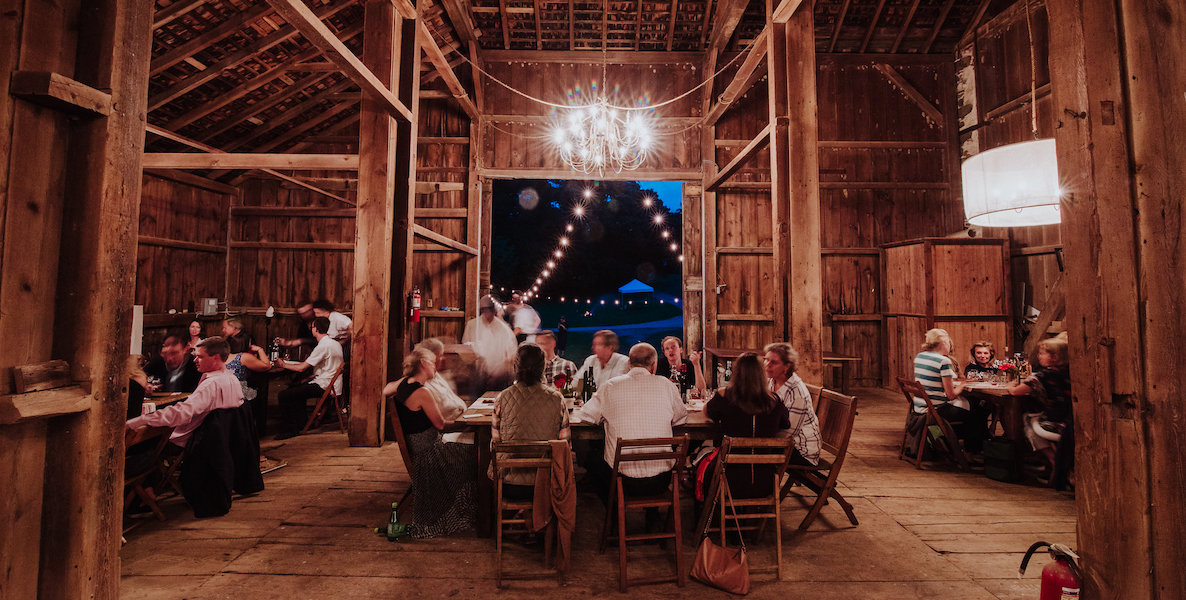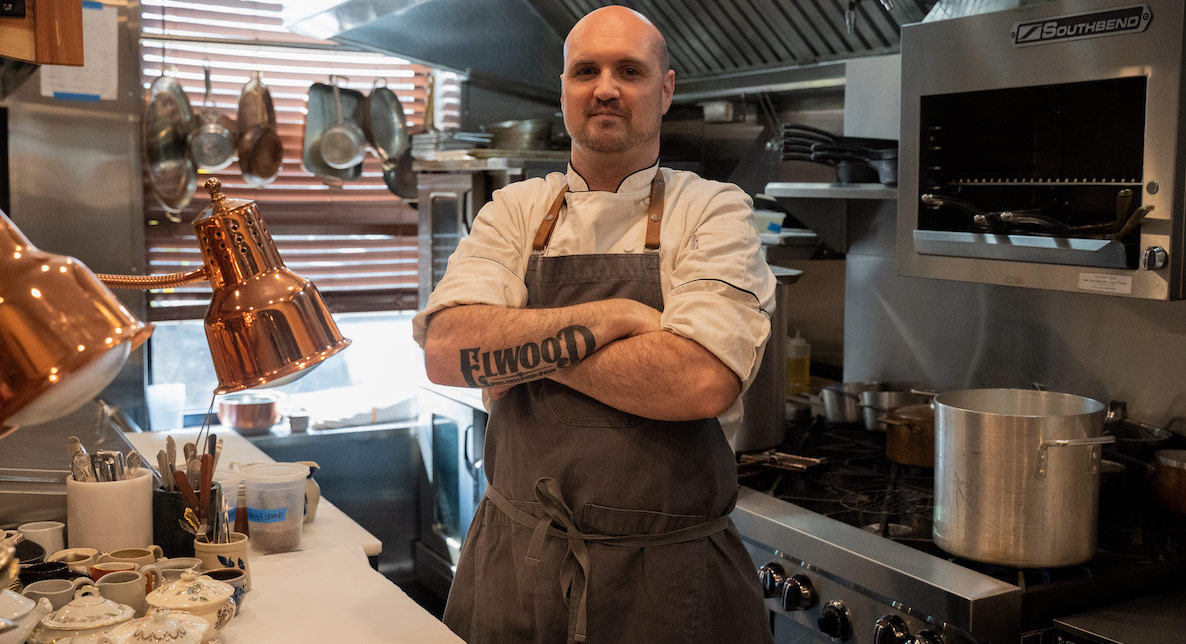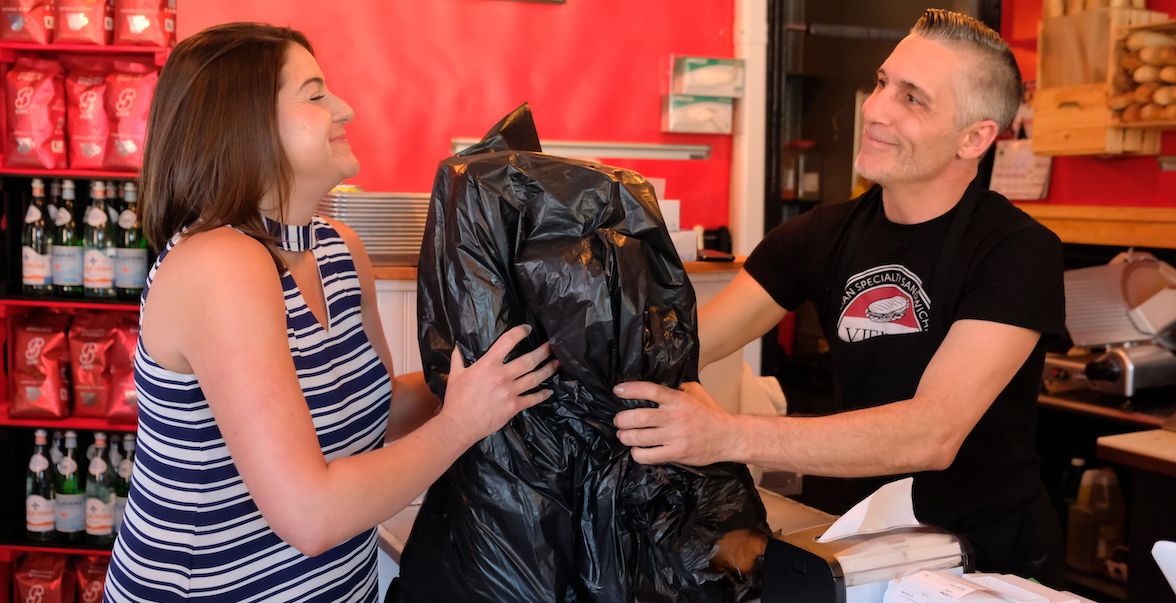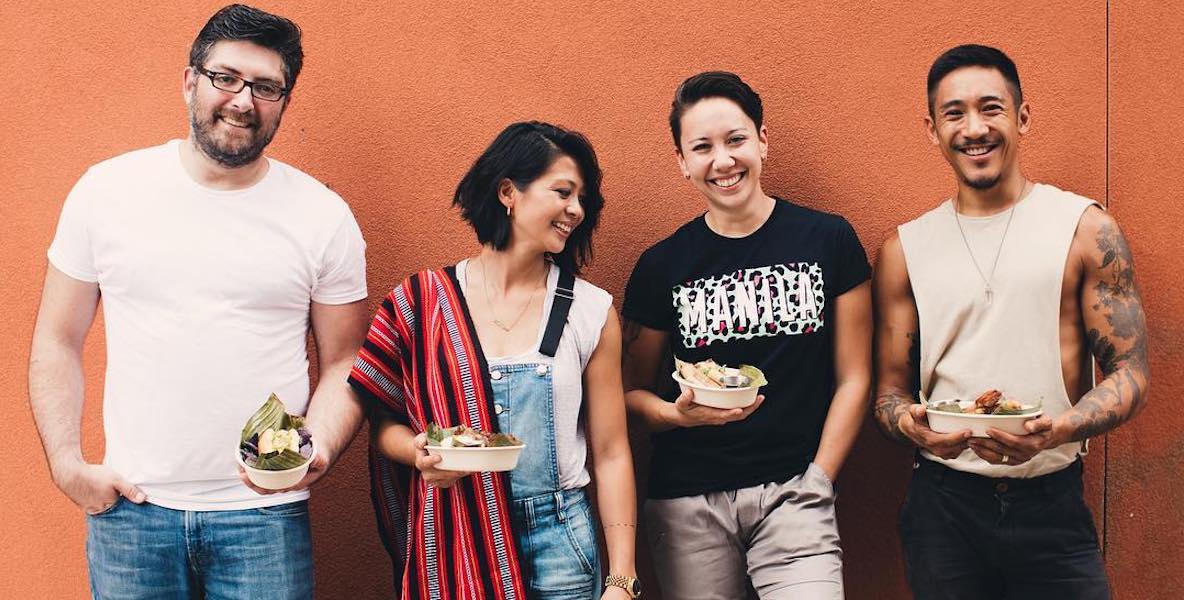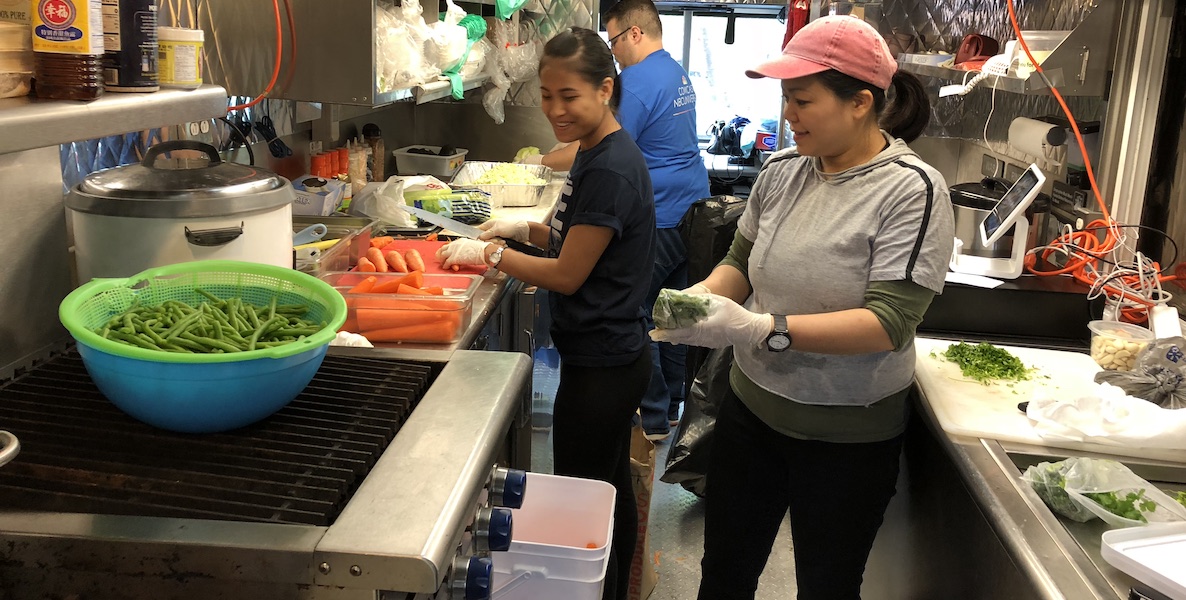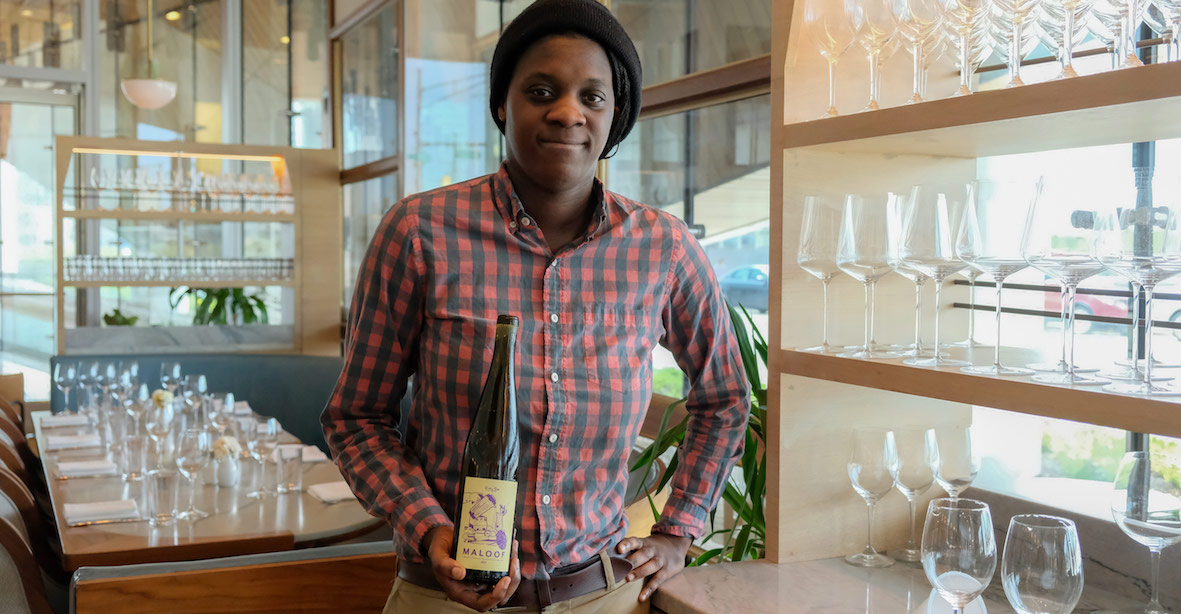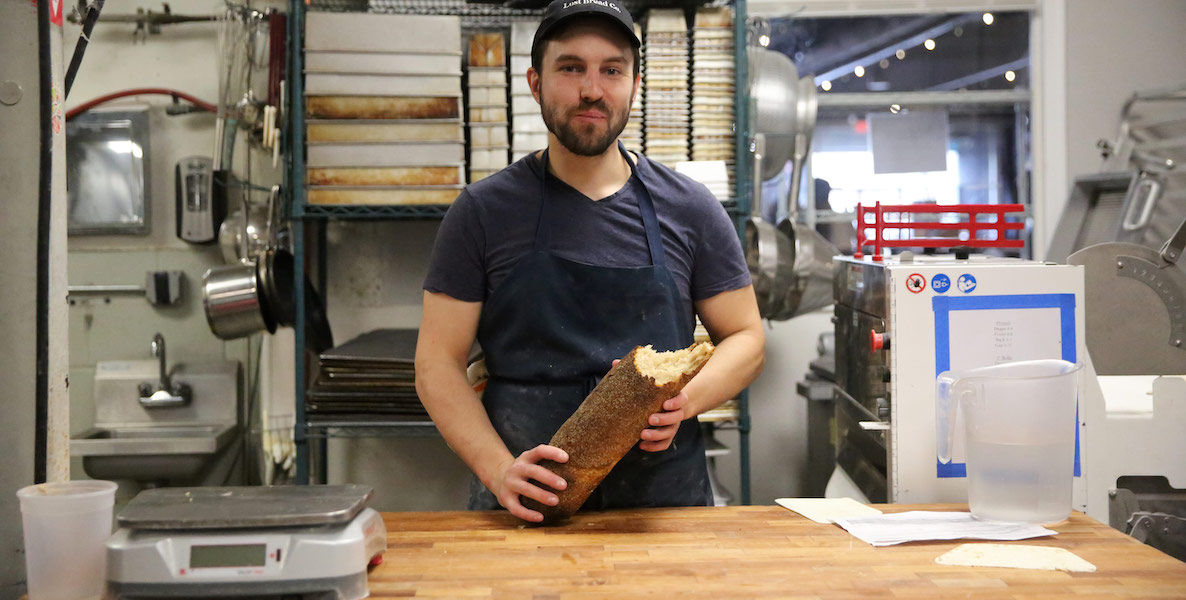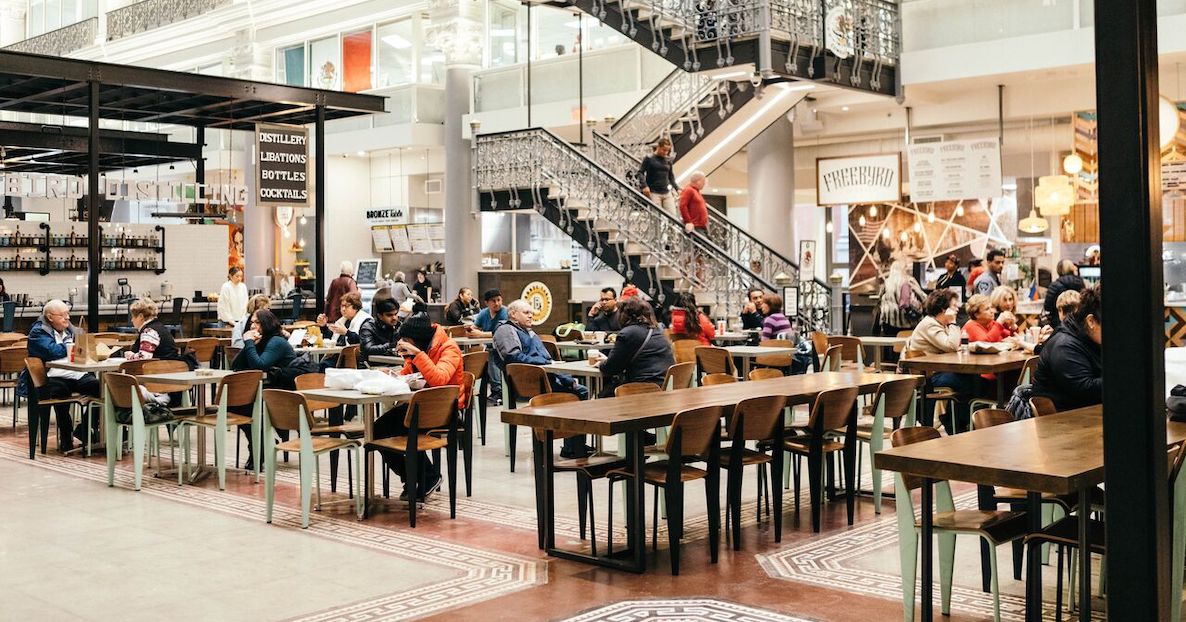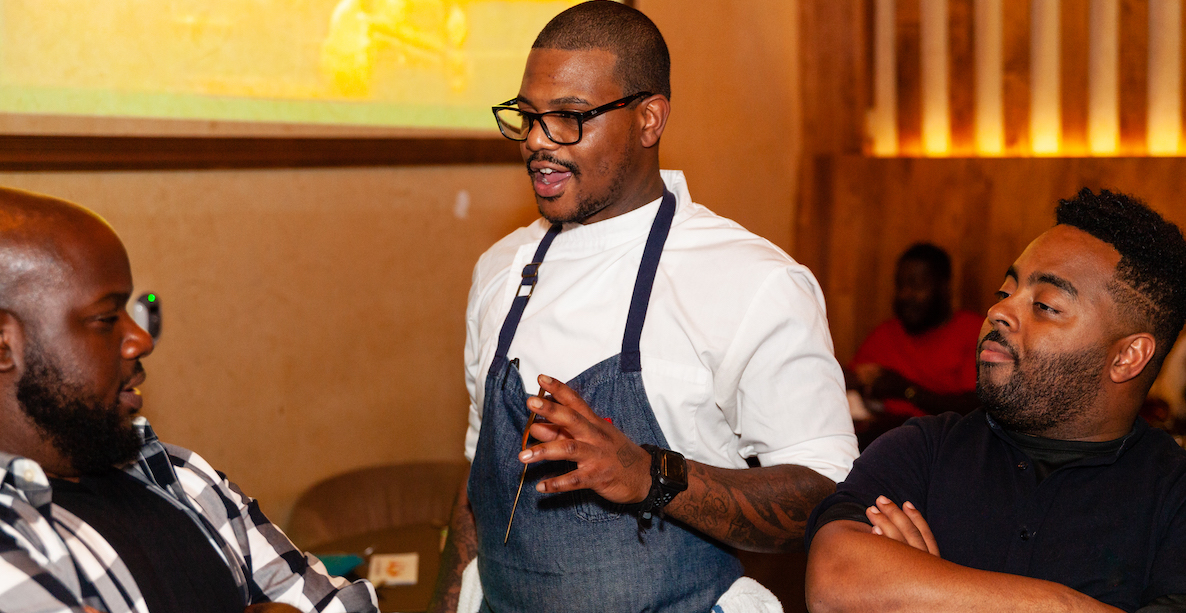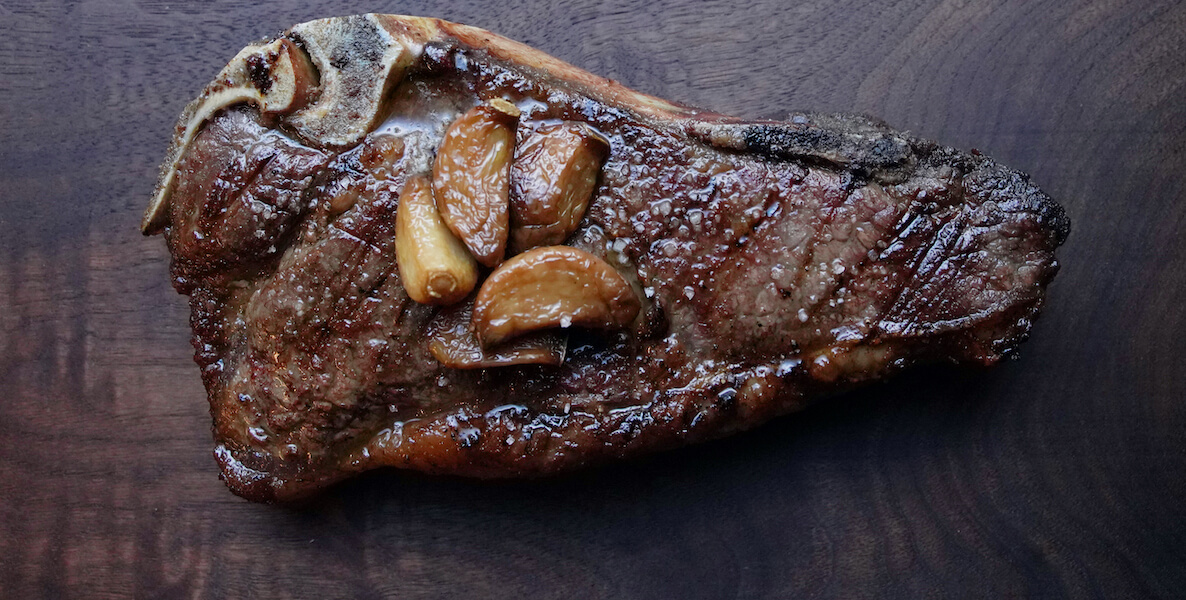Like many others, I’ve tried in recent years to consume less meat and lead a more vegetable-driven life. I’m not a vegetarian, definitely not a vegan, but there are plenty of days that I do not eat animals. I understand that reducing my meat consumption is better for the environment as well as my own health.
So it was with some sort of regressive, mischievous glee that I entered Alpen Rose, the wonderfully old-school steakhouse recently opened by Michael Schulson in Center City (the latest in his growing restaurant empire that includes Double Knot, Sampan, Guiseppe & Sons, and Harp & Crown).

Prefer the audio version of this story? Listen to this article in CitizenCast below:

Before you enter Alpen Rose, you must first be checked out by a hostess through a speakeasy-style door. This nod to Prohibition feels apt: In our enlightened times, eating a big steak for dinner might be, for some, frowned upon in the same way booze was scorned in the early 20th century. Stepping from the bright heat of a summer evening, into the cool, dark dining room with huge crystal chandeliers and bookshelves, a startling contrast to the bustle of 13th Street, feels like entering a clubhouse from another era. So does the menu, with dishes like Beef Wellington, shrimp cocktail, a 32-ounce porterhouse dry-aged for more than 60 days, and a 45-ounce tomahawk steak, for $125, that’s carved tableside.
“At the end of the day, there’s still a lot of carnivores in the world,” Thomason says.
We ordered meat upon meat, starting with appetizers of roast beef sprinkled with horseradish and cornichon and beef tongue topped with sauerkraut, Russian dressing, and rye croutons (channeling a reuben sandwich), followed by a dry-aged half a duck and a 24-ounce bone-in ribeye. We also had a caesar salad, which was tasty and classic, but ordered almost to convince ourselves we weren’t just having a meat orgy. We finished with a dessert of banana crème pie. The bill was enormous, and we waddled back outside, our eyes adjusting to the summer evening sunlight, in a daze. Let me not put too fine a point on this: It was effing amazing.
![]()
And, to be clear, I’m not a fan of steakhouses in general, which I often find to be bloated palaces of expense account excess. But Alpen Rose’s twist is incredibly successful because Schulson seems to know when to be modern (great cocktails, casual vibe, understated service) and when to hearken back to an earlier age. “The steakhouse concept as it is—over-sized, over-priced, glitzy, stuffy—is dated,” he told me. “There’s a fine line between both what’s old-school that works and what’s old-school that is in the past for a reason.”
More than anything specific or tangible, what’s most noteworthy about eating expensive steak in 2019 is the tension between our carnivorous, go-big-or-go-home appetite and the contemporary awareness of where our food comes from, and how it affects the world around us.
![]()
Alpen Rose sources its beef, all of it grass-fed, from Pat LaFrieda in New Jersey, perhaps America’s most famous butcher, supplying restaurants from Shake Shack to Eleven Madison Park. Schulson says they’d chosen LaFrieda after tasting meat from “over 20 different farms and purveyors.” They dry-age it themselves and cook it on a wood-burning grill. “There’d be no reason to do this if we weren’t going to do it as best we could,” Schulson says. All very good decisions.
Yet there’s a growing cohort of meat-eaters who demand even more accountability. And Philadelphia is home to one of the country’s leaders in sustainable, ethical butchery, Heather Marold Thomason of Primal Supply Meats, with shops in Brewerytown and East Passyunk. Thomason left a successful career in graphic design to pursue butchery, first with a stint as head butcher at Kensington Quarters. She started Primal Supply in 2016 and entered into a partnership with Marc Vetri last year. Her meat is now on menus ranging from Vetri’s namesake restaurant to more casual places such as Monk’s and Tired Hands Brew Café.
“The steakhouse concept as it is—over-sized, over-priced, glitzy, stuffy—is dated,” Schulson told me. “There’s a fine line between both what’s old-school that works and what’s old-school that is in the past for a reason.”
Primal Supply now supports more than a dozen local farmers, as well as a family-owned slaughterhouse in Lancaster County, and recognizes that humanely raised and slaughtered animals taste better and are healthier for everyone. “Happy healthy animals create better meat,” Thomason says. Even something as small as driving animals to the slaughterhouse is considered. “Stress affects the quality of the meat. The most stressful thing that happens to animals is moving them in trucks,” Thomason said. For that reason, the slaughterhouse used by Primal Supply allows the animals to relax in their barns and pastures for a couple of days before slaughter. In all, the slaughterhouse that partners with Primal Supply only processes about 75 animals per week, as opposed to a mechanized industrial slaughterhouse that may kill thousands per hour. Next to Primal Supply, even LaFrieda is massive.
Besides health and animal welfare, Primal Supply’s vision of sustainability also includes the farmers who raise the animals. Ultimately, Thomason runs a small local supply chain, where there are no middlemen. It takes two years to raise a beef steer. It takes eight months to a year to raise a hog. Meanwhile, farmers have feed to buy, mortgages to pay, families to raise. “If they raise an animal, they count on us. I can’t tell you what that means to a farmer,” she says. “For us to support every step along the way, that’s the real cost of the meat.”
![]()
Meaning, that’s why meat from good butchers is pricey. Thomason insists that, over years of buying cheap meat, American consumers have grown accustomed to an artificial, unrealistic sense of how much meat truly costs. “Our parents bought into this culture of convenience and bulk shopping,” she says. “It isn’t healthy.” Primal Supply’s prices are higher than conventional grocery stores, but mostly competitive with Whole Foods or other small butcher shops. “Our customers are choosing to pay more,” she says. “They’re paying more for less.”
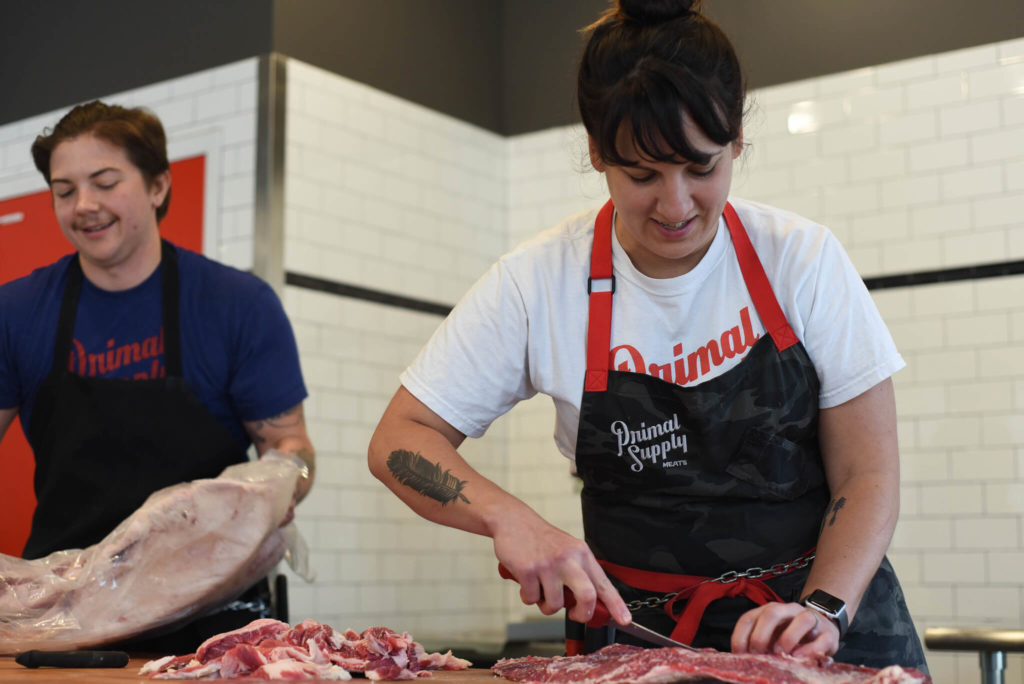
In that way, Thomason sounds surprisingly similar to ardent non-meat-eaters. “I have a lot in common with vegans and vegetarians, it just manifests in a different way,” she says. “It’s actually the same trend. People are moving away from accepting industrial food systems.” Still, when I asked if the trend toward more meat-free diets ever concerns her, Thomason chuckled. “At the end of the day, there’s still a lot of carnivores in the world,” she says.
Which perhaps explains both the persistence of the steakhouse, and the need for the steakhouse to evolve. “I believe guests embrace the nostalgic or classic foods,” Schulson says, “but they want it made for now, not as it was in 1975.” That’s why someone who’s now eating a more plant-based diet can still enjoy Alpen Rose. After all: Everything in moderation, including moderation. Even Schulson admits that steak isn’t for everyone, everyday. “I’ve been eating a lot of cauliflower steak this summer,” he says.
Header photo courtesy Schulson Collective



